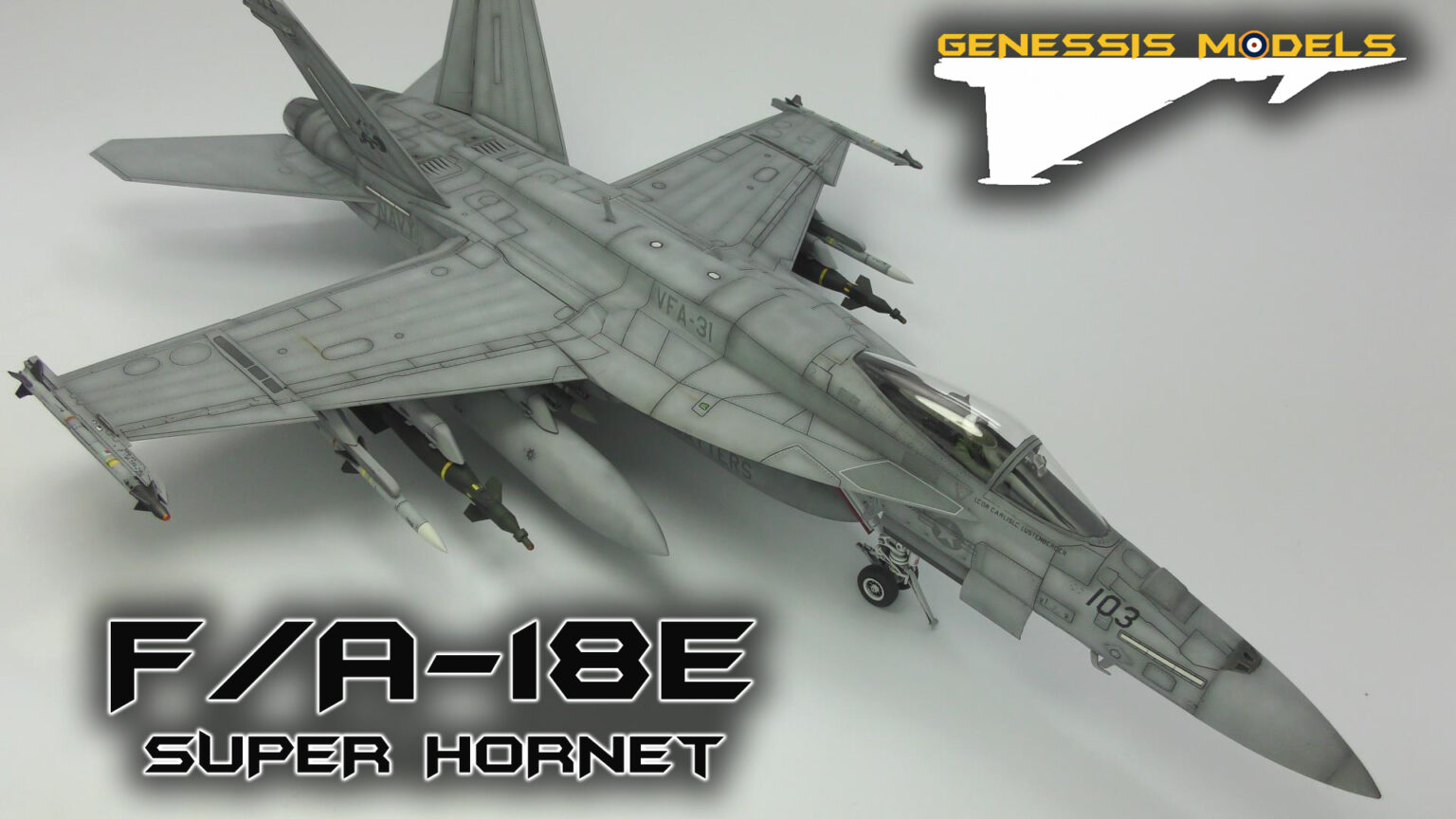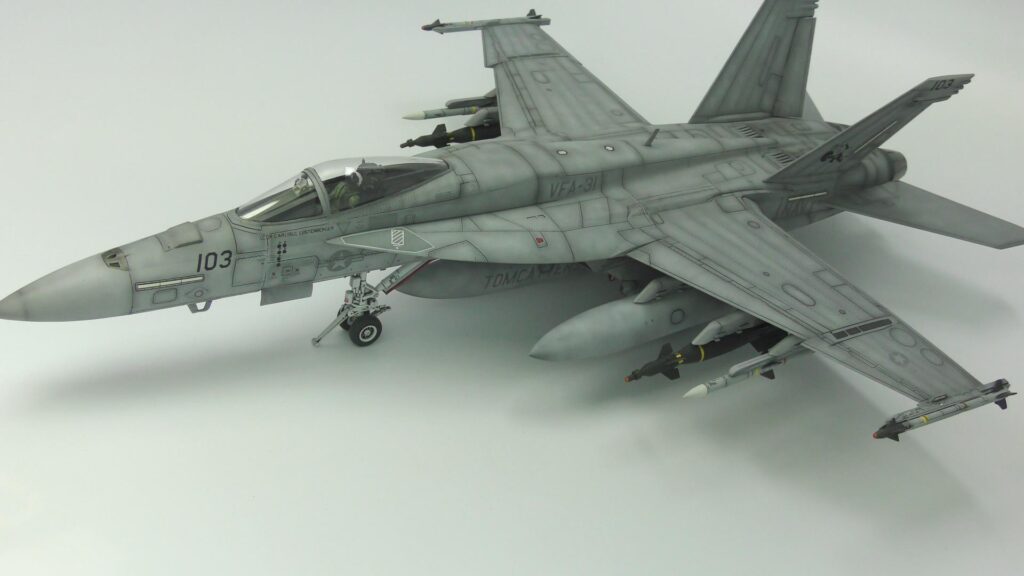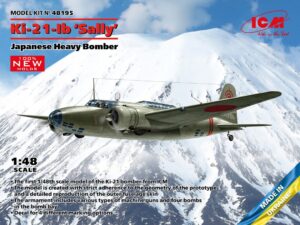Genessis Models News
Keep up-to-date with everything Genessis
F/A-18E SUPER HORNET : RAPID VIDEO BUILD : MENG MODELS : 1/48 SCALE MODEL

F/A-18E SUPER HORNET

- Manufacturer: Meng Models
- Scale: 1/48
- Step By Step Level: Intermediate
- Presented By: Bobby waldron
- Number of Episodes: 1
- Camera Angels: 3
- Camera Definition: Full HD & 4K
- PE Parts Used: Yes
- painting Mask Used: Yes
- Resin Parts Used: No
- Kit Used No: MMLS-012

The Super Hornet is a redesign of the McDonnell Douglas F/A-18 Hornet. The wing and tail configuration trace its origin to a Northrop prototype aircraft, the P-530, c. 1965, which began as a rework of the lightweight Northrop F-5E (with a larger wing, twin tail fins and a distinctive leading edge root extension, or LERX).[6] Later flying as the Northrop YF-17 “Cobra”, it competed in the United States Air Force‘s Lightweight Fighter (LWF) program to produce a smaller and simpler fighter to complement the larger McDonnell Douglas F-15 Eagle; the YF-17 lost the competition to the YF-16.[7]
The Navy directed that the YF-17 be redesigned into the larger F/A-18 Hornet to meet a requirement for a multi-role fighter to complement the larger and more expensive Grumman F-14 Tomcat serving in fleet defense interceptor and air superiority roles. The Hornet proved to be effective but limited in combat radius. The concept of an enlarged Hornet was first proposed in the 1980s, which was marketed by McDonnell Douglas as Hornet 2000. The Hornet 2000 concept was an advanced F/A-18 with a larger wing and a longer fuselage to carry more fuel and more powerful engines.[7][8]
The end of the Cold War led to a period of military budget cuts and considerable restructuring. At the same time, U.S. Naval Aviation faced a number of problems. The McDonnell Douglas A-12 Avenger II Advanced Tactical Aircraft (ATA) was canceled in 1991 after the program ran into serious problems; it was intended to replace the obsolete Grumman A-6 Intruder.[9] The Navy then embarked on another clean-sheet attack aircraft program called the Advanced-Attack (A-X), but also considered updating an existing design for an interim capability until A-X could be fielded.[10] As an alternative to the A-12, McDonnell Douglas had proposed the “Super Hornet” (initially “Hornet II” in the 1980s), an improvement of the successful previous F/A-18 models,[8] which could serve as an alternate replacement for the A-6 Intruder. In addition, the Hornet itself lacked sufficient bringback capability, or the ability to recover unused weapons aboard aircraft carriers.[11] The next-generation Hornet design proved more attractive than Grumman‘s Quick Strike upgrade to the F-14 Tomcat, which was regarded as an insufficient technological leap over existing F-14s. Furthermore, the A-X, which had evolved into the A/F-X (Advanced Attack/Fighter) due to added fighter capabilities, was canceled in the 1993 Bottom-Up Review as the Super Hornet was viewed as a more attractive approach to a clean-sheet design due to post-Cold War budget reductions.[12]
At the time, the Grumman F-14 Tomcat was the Navy’s primary air superiority fighter and fleet defense interceptor. Cheney described the F-14 as 1960s technology, and drastically cut back F-14D procurement in 1989 before cancelling production altogether in 1991, in favor of the updated F/A-18E/F.[13][14] The decision to replace the Tomcat with an all-Hornet Carrier Air Wing was controversial; Vietnam War ace and Congressman Duke Cunningham criticized the Super Hornet as an unproven design that compromised air superiority.[12][15] In 1992, the Navy canceled the Navy Advanced Tactical Fighter (NATF), which would have been a navalized variant of the Air Force’s Lockheed Martin F-22 Raptor to complement the A-12.[7] As a cheaper alternative to NATF, Grumman proposed substantial improvements to the F-14 beyond Quick Strike, but Congress rejected them as too costly and reaffirmed its commitment to the less expensive F/A-18E/F.[16]
Hope you enjoy
Find Products In Store
-
 Fighter Ace Monthly£8.99 / month
Fighter Ace Monthly£8.99 / month -
 Fighter Ace Yearly£89.00 / year
Fighter Ace Yearly£89.00 / year -
Product on sale
 ICM : Ki-21-1b “Sally” Japanese Heavy Bomber : 1/48 ScaleOriginal price was: £59.80.£53.00Current price is: £53.00.
ICM : Ki-21-1b “Sally” Japanese Heavy Bomber : 1/48 ScaleOriginal price was: £59.80.£53.00Current price is: £53.00. -
 Fighter Pilot Monthly£5.50 / month
Fighter Pilot Monthly£5.50 / month
